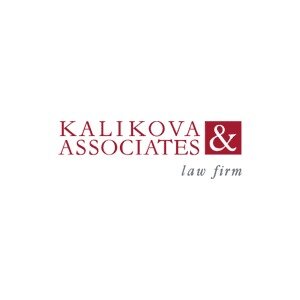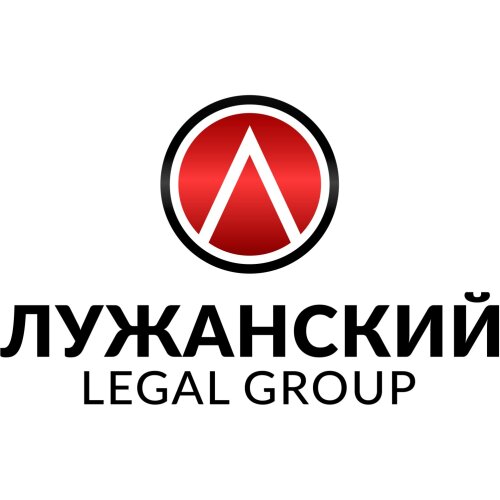Best Mining Law Lawyers in Kyrgyzstan
Share your needs with us, get contacted by law firms.
Free. Takes 2 min.
Or refine your search by selecting a city:
List of the best lawyers in Kyrgyzstan
About Mining Law in Kyrgyzstan
Mining Law in Kyrgyzstan covers the legal requirements, procedures, and regulations involved in exploring, extracting, and processing mineral resources within the country. The legal framework regulates relations between the state, investors, and other stakeholders. Kyrgyzstan is rich in natural resources such as gold, coal, and rare earth metals, making mining a pivotal sector of the national economy. The sector is governed by specific laws, licensing systems, and rules on land use, environmental protection, and revenue sharing.
Why You May Need a Lawyer
Mining projects often include complex legal considerations that can be difficult to navigate without expert assistance. You may require a lawyer for a variety of situations such as:
- Applying for or maintaining valid mining licenses and permits
- Negotiating exploration or joint-venture agreements
- Handling disputes concerning mining rights or land ownership
- Ensuring compliance with environmental and safety regulations
- Addressing issues related to taxation, royalties, and fees
- Managing community relations and resolving conflicts with local stakeholders
- Responding to claims by regulators or participating in litigation
A qualified mining lawyer can help you follow the correct procedures, avoid costly mistakes, and represent your interests effectively throughout your mining operations.
Local Laws Overview
Mining Law in Kyrgyzstan is primarily regulated by the Law on Subsoil and supported by many accompanying acts, government resolutions, and orders. Key aspects include:
- Licensing System: All subsoil use requires a license, typically acquired through competitive bidding or direct application. Licenses are issued for exploration, development, or mining.
- Ownership: The state owns all subsoil resources. Licenses grant the right to use, not own, minerals.
- Obligations: License holders must meet investment, production, reporting, and ecological obligations.
- Environmental Considerations: Strict environmental laws require impact assessments and post-mining land restoration.
- Land Use: Acquiring mining rights does not automatically grant land ownership. Land use for mining is regulated separately and may require agreements with landowners or local authorities.
- Taxation and Royalties: Multiple taxes and royalties apply, including a mining tax, income tax, and payments for use of subsoil resources.
- Local Content and Community Relations: Companies are often required to hire local staff and invest in community projects.
Frequently Asked Questions
What are the main laws regulating mining in Kyrgyzstan?
The primary law is the Law on Subsoil, supported by additional regulations, governmental decrees, and environmental legislation.
Do all mining activities require a license?
Yes, any exploration or extraction activities in Kyrgyzstan require a valid subsoil use license obtained from the relevant state body.
How are mining licenses granted?
Licenses are typically awarded through competitive tenders, auctions, or direct negotiations, depending on the type of mineral and the project's significance.
Who owns mineral resources in Kyrgyzstan?
All subsoil resources are owned by the state. Individuals or companies only receive rights to use these resources via licenses.
What taxes and royalties apply to mining?
Mining companies must pay several taxes, including a mining tax, income tax, and royalties based on production volume and type of mineral.
How are environmental obligations enforced?
Companies must secure an environmental impact assessment and follow strict requirements regarding land restoration, waste disposal, and pollution control.
Can foreign companies participate in mining projects?
Yes, foreign individuals and companies can obtain mining licenses and invest in Kyrgyzstan's mining sector, subject to local regulations.
What happens if a company violates mining laws?
Violations can result in license suspension or revocation, fines, and financial or criminal liability, depending on the severity and type of infraction.
Is land ownership granted with mining rights?
No, subsoil use licenses do not automatically grant ownership of surface land. Separate agreements or permits must be obtained for land access and use.
Are there any special requirements for community involvement?
Yes, mining companies must often engage with local communities, conduct consultations, and invest in social and infrastructure projects as part of their obligations.
Additional Resources
Individuals seeking advice or support on Mining Law in Kyrgyzstan can consult the following resources:
- Ministry of Natural Resources, Ecology and Technical Supervision - The chief regulatory body for mining and subsoil use.
- State Committee for Industry, Energy and Subsoil Use - Responsible for policy and licensing in the mining sector.
- Kyrgyz Chamber of Commerce and Industry - Provides support and guidance to businesses operating in the sector.
- Local Legal Consultancies - Offer specialized mining law advice and representation.
- International Development Agencies - May provide reports, market insights, and capacity building in the extractive industries.
Next Steps
If you require legal assistance for a mining project or issue in Kyrgyzstan, consider the following steps:
- Clearly identify your legal needs and gather all relevant documents about your mining activities or interests.
- Research and contact a qualified lawyer or law firm with experience in Kyrgyz Mining Law.
- Schedule a consultation to discuss your specific questions or concerns.
- Prepare a list of questions for your lawyer, including those about licensing, compliance, taxes, and community obligations.
- Follow your lawyer’s guidance regarding further steps, whether it involves submitting applications, negotiating agreements, or handling disputes.
Expert legal advice can help you avoid common pitfalls and ensure that your mining operations proceed smoothly in line with Kyrgyzstan’s legal requirements.
Lawzana helps you find the best lawyers and law firms in Kyrgyzstan through a curated and pre-screened list of qualified legal professionals. Our platform offers rankings and detailed profiles of attorneys and law firms, allowing you to compare based on practice areas, including Mining Law, experience, and client feedback.
Each profile includes a description of the firm's areas of practice, client reviews, team members and partners, year of establishment, spoken languages, office locations, contact information, social media presence, and any published articles or resources. Most firms on our platform speak English and are experienced in both local and international legal matters.
Get a quote from top-rated law firms in Kyrgyzstan — quickly, securely, and without unnecessary hassle.
Disclaimer:
The information provided on this page is for general informational purposes only and does not constitute legal advice. While we strive to ensure the accuracy and relevance of the content, legal information may change over time, and interpretations of the law can vary. You should always consult with a qualified legal professional for advice specific to your situation.
We disclaim all liability for actions taken or not taken based on the content of this page. If you believe any information is incorrect or outdated, please contact us, and we will review and update it where appropriate.
Browse mining law law firms by city in Kyrgyzstan
Refine your search by selecting a city.











